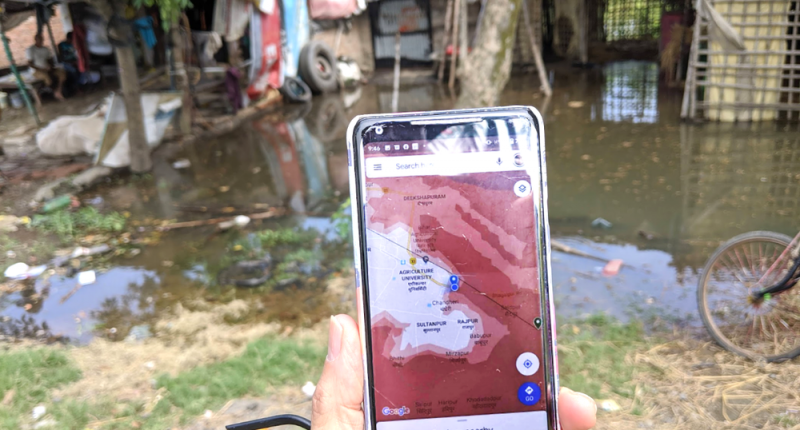Google, in its efforts to help people in flood prone areas receive early warnings before time, has announced that the Google flood forecast service will now cover all of India. The Google flood forecast service is powered by Artificial Intelligence, and uses machine learning to pinpoint flood prone areas and sends early alerts to residents living there.
The service has also been expanded to Indian neighbor, Bangladesh, which faces severe floods every year, with Google joining hands with the Water Development Board of Bangladesh. The search giant also works hand-in-hand with Indian Central Water Commission, Israel Institute of Technology and Bar-Ilan University.
The flood forecast tool uses data from rivers around the globe, studying their water levels, rainfall and flood simulation, and forms a forecast model on the basis of this data. Google said it is trying several new models that will give more accurate warnings. Their current model gives data about the depth of the floods and also has “doubled the lead time” of alerts compared to its older systems.
Google is also working on making its alert system more accessible, and has added Bengali, Hindi, as well as several other local languages to it, so that everyone in the alerted area can understand a warning regardless of the language they speak. It has also updated how the message alerts appear on the users’ devices and claims to have reached 30 million Android users’ devices with flood alerts. Moreover, the company claims that the alert system is more localized and accurate now.
The service was launched in 2018 as a pilot project in Patna, capital of Bihar. Since then, it has worked with various other local governments throughout India, and as of June covered all the worst flood-prone areas. Google says, around 200 million people in India and 40 million in Bangladesh will now be able to receive flood alerts.
Google in collaboration with scientists from Yale carried out a study in the Ganga-Brahmaputra basin and developed great results from it. 70% of people received the flood alerts before the water entered their residential area and 65% of them immediately reacted to it. But the residents still complained lack of access to smartphones and network in the area and preferred flood warnings from a local leader or loudspeakers. To tackle this issue, Google said it has made a deal with International Federation of Red Cross and Red Crescent Societies, who will help spread alerts through their own networks.
The Tech Portal is published by Blue Box Media Private Limited. Our investors have no influence over our reporting. Read our full Ownership and Funding Disclosure →








